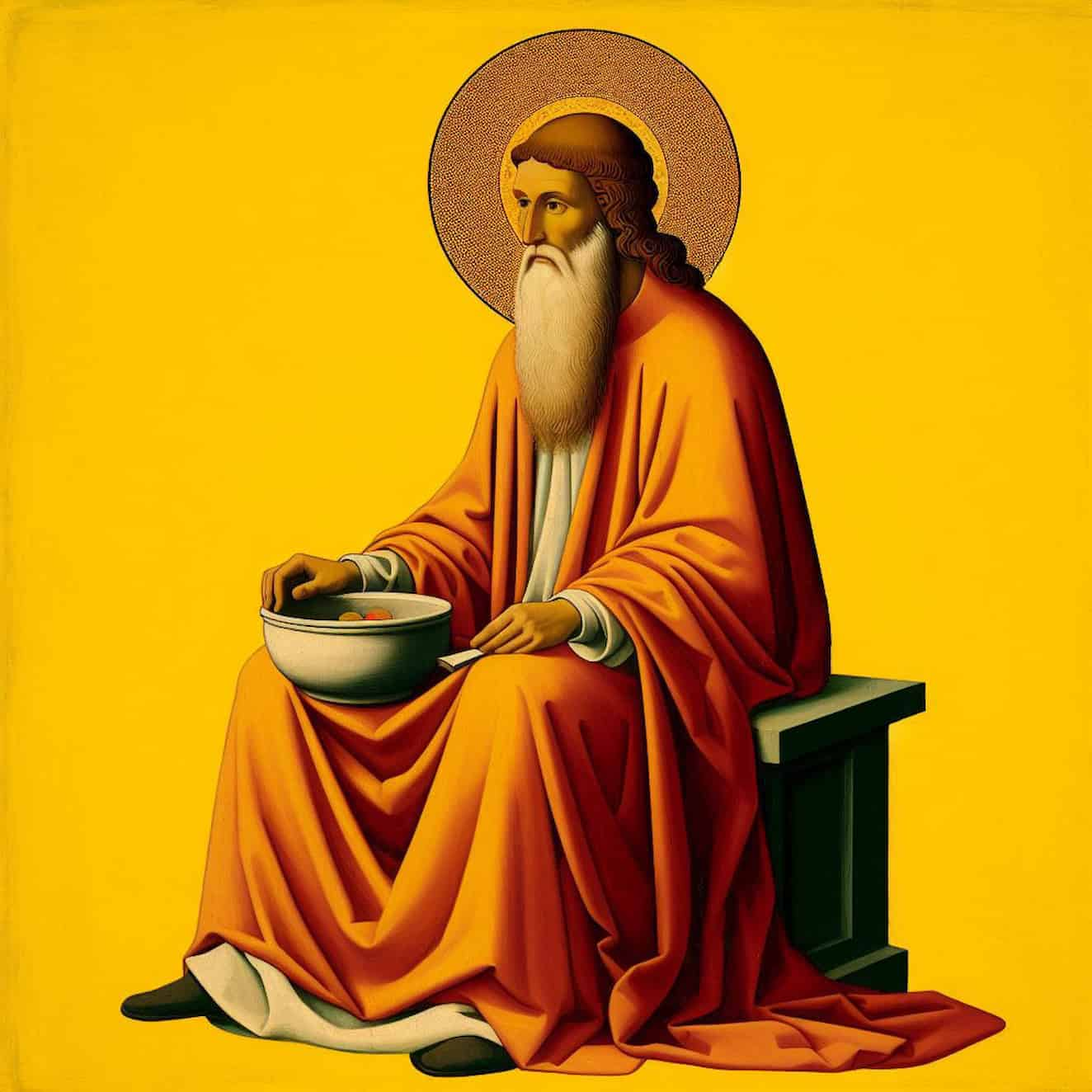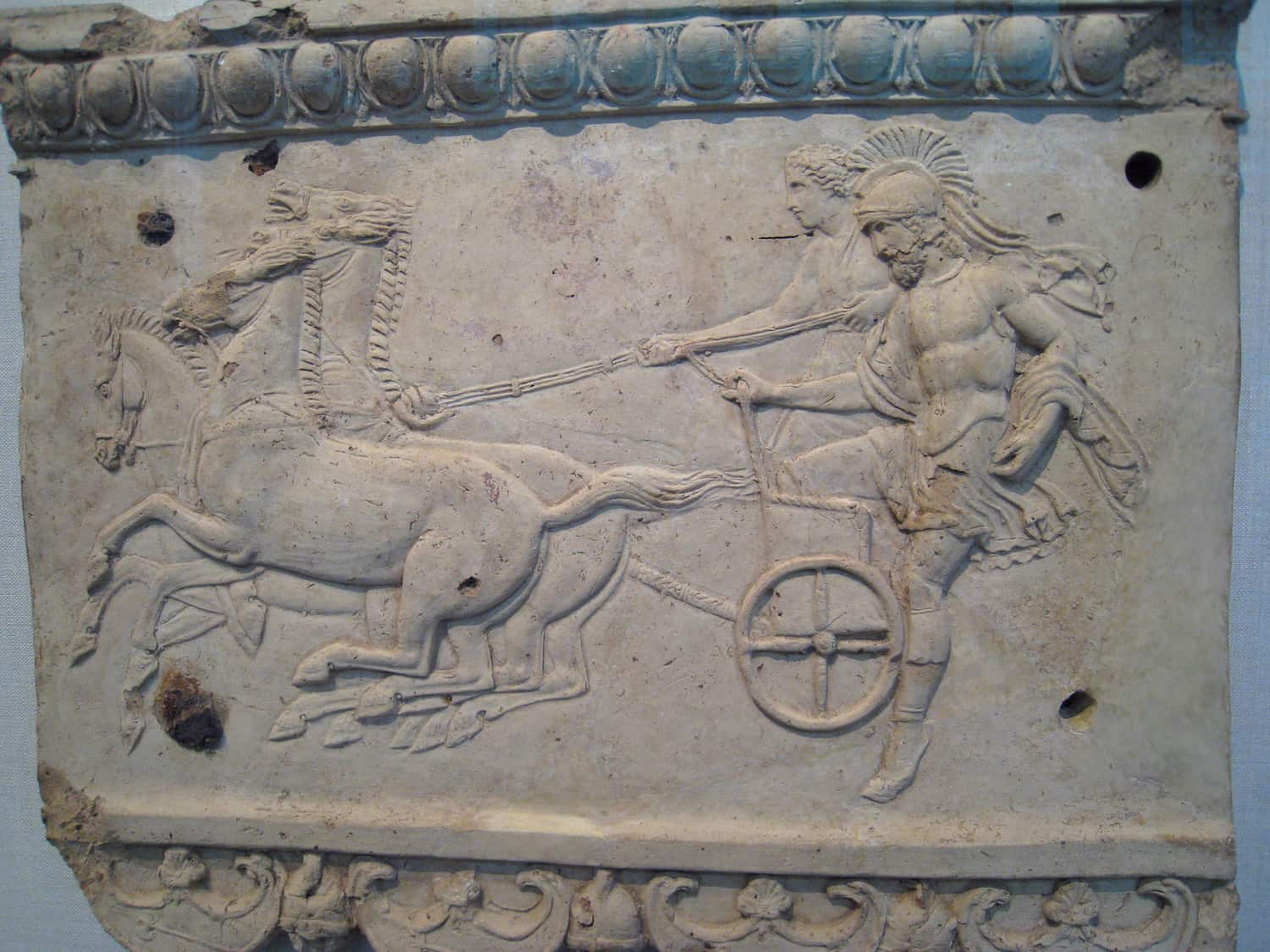In Greek mythology, Menoetius (Μενοίτιος: Menoítios “ill-fated power”, from μένος “power” and οἶτος “ill fate”) is remembered in the Iliad as the father of Patroclus. Pindar says that among all the settlers who were invited to reside in Opuntian lands, King Opus honored Menoetius above all others.
| Menoetius | |
|---|---|
| Family | |
| Spouse | Sthenele Polymele Philomela |
| Children | Patroklos Myrto Abderus |
| Parents | Actor and Aegina and Damocrateia |
| Siblings | Peleus |
Menoetius was himself the son of Actor, the Argonaut, and Egina, but before marrying him, Egina had given Zeus a son named Aeacus, the father of Peleus and therefore the grandfather of Achilles. Thus, Menoetius and Aeacus were half-brothers, making Patroclus Achilles’ cousin-uncle (Homer, indeed, presents Patroclus as older). Eustathius has another version. He says, “It must be known that ancient historiography transmits Patroclus as a relative of Achilles; Hesiod asserts that Menoetius, the father of Patroclus, was the brother of Peleus, so in that case, the two were cousins.”
The wife of Menoetius and mother of Patroclus does not have a firmly established tradition. Apollodorus summarizes its variants: “Estenele, daughter of Acastus; or Periopis, daughter of Pheres, or according to Philecrates, of Polymela, (or Philomela), daughter of Peleus.” Others say it was Damocratea, a daughter of Zeus and Egina. It is said that Menoetius’s daughter was Myrto, and that she had a daughter, Euclea, by Heracles.
Menoetius participated in the expedition of the Argonauts. When his friend Heracles died, Menoetius instituted that sacrifices be offered to him every year in Opus and that he be honored as a hero. He lived in this city when Patroclus, still a child, accidentally killed his friend Clytonimus, son of Amphidamas, while they were playing dice. This event led both of them to flee to the court of Peleus in Phthia, where they met Achilles, and the father remained there until the end of his days. There they were found by Odysseus and Nestor when they were recruiting troops for the Trojan War. Before departing for the war, Menoetius entrusted Patroclus with the task of advising and guiding Achilles, even though he had “a superior lineage.”
Menetios is mentioned a few times in the Iliad. At the time of the Iliad, Achilles tells Patroclus that his father is still alive. It is also in the Iliad that the advice he gives to his son before leaving for Troy is recorded:
“Achilles, by lineage, is above you, my son;
But he is your junior, even if he is superior to you,
It’s up to you to speak to him wisely, to instruct him
And to guide him: he will see what he gains from it.”
References
- The less common form “Menetio” appears in Hesiod: Works and Fragments, volume 13 of the Editorial Clásica Gredos
- This etymology is given by Robert Graves in the name day of The Greek Myths, adding that it could also mean “fate or defiant”.
- Hesiod, Theogony 507 ff.
- Apollodorus: Library I 2, 3.
- Hesiod: Theogony 510
- Hesiod: Theogony 514–516
- Scholia on Aeschylus’ Prometheus 347.
- Hyginus: Foreword to Fables 11






